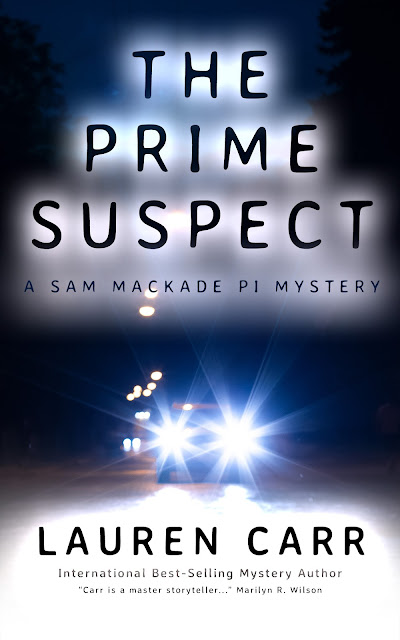Book Details:
Title: The Plant Paradox: The Hidden Dangers in "Healthy" Foods that Cause Disease and Weight Gain
Author: Steven R. Gundry, MD
Publisher: Harper Wave
Category: Adult Non-Fiction, 416 pages
Genre: Health, Fitness and Dieting
Published: April 25, 2017
Content Rating: G
Book Description:
Most of us have heard of gluten—a protein found in wheat that causes widespread inflammation in the body. Americans spend billions of dollars on gluten-free diets in an effort to protect their health. But what if we’ve been missing the root of the problem? In The Plant Paradox, renowned cardiologist Dr. Steven Gundry reveals that gluten is just one variety of a common, and highly toxic, plant-based protein called lectin. Lectins are found not only in grains like wheat but also in the “gluten-free” foods most of us commonly regard as healthy, including many fruits, vegetables, nuts, beans, and conventional dairy products. These proteins, which are found in the seeds, grains, skins, rinds, and leaves of plants, are designed by nature to protect them from predators (including humans). Once ingested, they incite a kind of chemical warfare in our bodies, causing inflammatory reactions that can lead to weight gain and serious health conditions.
At his waitlist-only clinics in California, Dr. Gundry has successfully treated tens of thousands of patients suffering from autoimmune disorders, diabetes, leaky gut syndrome, heart disease, and neurodegenerative diseases with a protocol that detoxes the cells, repairs the gut, and nourishes the body. Now, in The Plant Paradox, he shares this clinically proven program with readers around the world.
The simple (and daunting) fact is, lectins are everywhere. Thankfully, Dr. Gundry offers simple hacks we easily can employ to avoid them, including:
· Peel your veggies. Most of the lectins are contained in the skin and seeds of plants; simply peeling and de-seeding vegetables (like tomatoes and peppers) reduces their lectin content.
· Shop for fruit in season. Fruit contain fewer lectins when ripe, so eating apples, berries, and other lectin-containing fruits at the peak of ripeness helps minimize your lectin consumption.
· Swap your brown rice for white. Whole grains and seeds with hard outer coatings are designed by nature to cause digestive distress—and are full of lectins.
With a full list of lectin-containing foods and simple substitutes for each, a step-by-step detox and eating plan, and delicious lectin-free recipes, The Plant Paradox illuminates the hidden dangers lurking in your salad bowl—and shows you how to eat whole foods in a whole new way.
Purchase Links:
My Review:
Reviewed by Laura Fabiani
This book contains a wealth of information and is divided into three parts. The first part The Dietary Dilemma is where Dr. Gundry introduces the idea that lectins are bad for you. A popular lectin is gluten and we've heard all about why that is not good for us, primarily because as Dr. William Davis explained in Wheat Belly, it has been genetically modified and therefore no longer good for our bodies. Dr. Gundry then goes on to list all the foods that contain lectins that aren't good for us and, frankly, I was kind of taken aback. Legumes, beans, seeds, whole grains, and vegetable skins to name a few. This book is aptly titled because it does seem a paradox.
However, because I truly believe that God created us to eat a plant-based diet, I'm assuming the problem with all our dietary restrictions of whole foods is because mankind messed with the food's chemical properties, rendering what was once healthy into unhealthy. It doesn't make sense that we have to avoid eating most foods that God created for us and this book is a testament to how far gone our food source has become. Nevertheless, because of this, books like this one are good reminders that we need to exercise caution in what we eat. And being educated about our foods is always a good thing.
The second part of the book is Introducing the Plant Paradox Program and it goes into a 3-day cleanse and Dr. Gundry's program for returning to optimal health. It's doable but requires a lot of discipline and finding the right foods such as pasture chicken and beef, in other words, grass fed organic meat, which is not available at most grocery stores. However, if you suffer from an autoimmune or inflammatory illness, this diet is certainly worth considering. The last part is the Meal Plans and Recipes.
Overall, I learned a lot by reading this book. I am more determined than ever to find grass-fed meat, cook my legumes with a pressure cooker (it's the only way to reduce the lectins) and take the right supplements to enhance my wellbeing. It can be discouraging to see how bad our food supply has become. We cannot change it all, but making even a few better eating choices can make us feel better.
This book certainly offers food for thought (pun intended) and is good reading for any person who wants to learn more how to fight diseases with the right foods. This one's a keeper and a reference book that I will be using more and more as I continue my quest to satisfy my thirst for knowledge in using food to heal.
Disclosure: Thanks to the publisher and TLC Book Tours for sending me this book for review. I was not compensated in any other way, nor told how to rate or review this product.
About the Author:
Steven R. Gundry, MD, FACS, FACC, is the director of the International Heart and Lung Institute in Palm Springs, California, and the founder/director of The Center for Restorative Medicine in Palm Springs and Santa Barbara.
Find out more about Dr. Gundry and his work at his website, and connect with him on Facebook.









This has me intrigued. I have an autoimmune disease and suffer from swollen joints. Interesting that using a pressure cooker on certain foods rids them of these toxins. We are very fortunate to have supplies of grass fed organic meat.
ReplyDeleteI've read many books in my quest to understand how food can heal and this is the first time I read about lectins. I think you would learn a lot from it.
DeleteThis is very interesting. It makes sense although seems contrary to other diets that say to eat whole grains, brown rice, etc. We have been trying to watch sugars and sodium as my hubby is border line diabetic. You really have to move to more natural foods because processed foods are so full of things we don't need! I am interested in learning more. Thanks for sharing this.
ReplyDeleteI totally agree with you. I've cut sugar considerably from our diet and try to cook whole meals as much as possible. Science is learning new things every day about how we messed up our foods and are paying dearly for it now.
DeleteBooks like this inspire me to do better, even if I can't follow their suggestions 100%. Your mention of the pressure cooker to cook legumes may be just the nudge I needed to finally start using my pressure cooker. I enjoy beans and if cooking them in the pressure cooker is better for me, then I'll do it that way.
ReplyDeleteThanks for being on this tour!
I need to get a pressure cooker for sure. Thanks for stopping by, Trish!
Delete